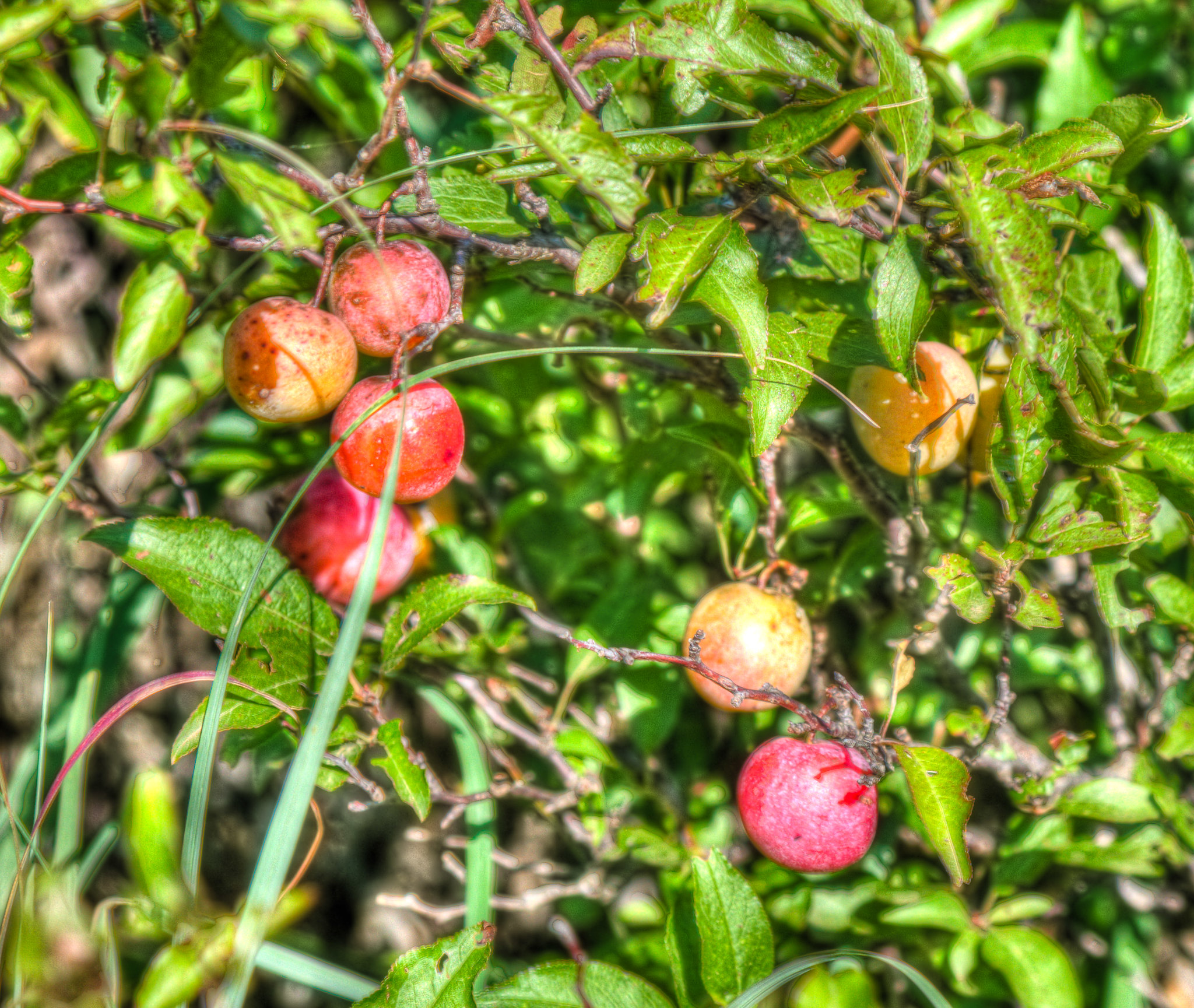"Sandhill Plums" by Mike Rodriquez is licensed under CC BY-NC-SA 2.0 .
Official State Fruit of Kansas
In 2021 fourth grade students taught by Jobi Wertenberger from Sabetha Elementary School started the process to make the sandhill plum the official state fruit of Kansas. Eventually more than 400 students from 24 different schools in Kansas became involved writing essays and sending letters to state representatives. On April 12, 2022, Governor Laura Kelly signed House Bill 2644 into law making the sandhill plum the official state fruit of Kansas. All State Foods
Nestled in the heart of the Great Plains, Kansas boasts a wealth of natural wonders, from expansive prairies to rolling hills. Among its many treasures is the Sandhill Plum (Prunus angustifolia), a delightful fruit-bearing tree that has become an integral part of the state's landscape and culture. Let's delve into the captivating world of the Sandhill Plum and discover why it holds such significance in the Sunflower State.
The Sandhill Plum is a small deciduous tree that is native to the central and eastern regions of North America. Flourishing in the fertile soil of Kansas, it is especially abundant in the state's eastern and central areas, where the climate and growing conditions are most favorable. This hardy tree has adapted to the challenging prairie environment, making it an emblem of resilience and adaptation.
What sets the Sandhill Plum apart are its beautiful blossoms and delectable fruits. In early spring, clusters of delicate white flowers bloom, adorning the tree with a mesmerizing sight. These blossoms attract pollinators like bees, butterflies, and other insects, ensuring the tree's successful reproduction.
Come summer, the Sandhill Plum's bounty ripens, transforming the landscape into a vibrant display of purple and red hues. The plums, small and round, boast a sweet yet tangy flavor that is cherished by locals and wildlife alike. The fruit's juicy flesh and firm texture make it perfect for a variety of culinary creations, including jams, jellies, pies, and even wine.
The Sandhill Plum holds a significant place in the history and culture of Kansas. For centuries, Native American tribes that inhabited the region recognized the value of this fruit-bearing tree. The plums provided nourishment and sustenance, consumed fresh or dried, and were often incorporated into traditional recipes. Native Americans also appreciated the tree's medicinal properties, utilizing its bark, leaves, and fruits for various remedies.
As European settlers arrived in Kansas, they too discovered the abundance and versatility of the Sandhill Plum. Early pioneers recognized its value as a food source, especially during challenging times when other crops were scarce. The plums were gathered, preserved, and utilized in a range of culinary creations, serving as a source of sustenance for communities across the state.
Beyond its practical uses, the Sandhill Plum holds a special place in the hearts of Kansans due to its cultural and sentimental significance. It represents a connection to the land, a testament to the state's rich agricultural heritage. The Sandhill Plum has inspired annual festivals and events dedicated to celebrating its splendor. These gatherings bring together locals and visitors to enjoy plum picking, cooking demonstrations, live music, and more, fostering a sense of community and appreciation for this native gem.
It's worth noting that the Sandhill Plum's role in Kansas extends beyond its culinary and cultural value. The tree plays a vital ecological role as well. Its deep roots help stabilize the soil, preventing erosion and supporting the delicate balance of the prairie ecosystem. Additionally, the plums provide nourishment to a range of wildlife, including birds, mammals, and insects, contributing to the overall biodiversity of the region.
The Sandhill Plum, with its delicate blooms, luscious fruits, and rich history, is a true Kansas treasure. It symbolizes the state's resilience, adaptability, and deep connection to the land. As Kansans savor the flavors of this delightful fruit and celebrate its presence, they honor the natural wonders that make their state truly unique.

